Long-term British expat recounts the worst moment of his life
By Colin Hastings
It was nothing more than a momentary lapse of concentration while performing – ironically enough – a good deed, yet a sudden loss of footing in a remote field in northeastern Thailand resulted in a catastrophic and life-threating injury that led to the loss of British expat Steven Howard’s right eye.
For anyone, the loss of an eye is a disaster, but for Steven, who earns his living as a writer and photographer, the consequences of this terrible accident were potentially far more serious.
Two years later, Steven recalls the worst moment in his life:
“I was staying at my girlfriend’s farm in Roi-Et in the Northeast when I noticed one of the family calves wander into the neighbour’s garden towards his recently expanded vegetable patch. The calf was only doing what came naturally to him as the vegetables did look delicious. The neighbour was none too pleased though and started to load up a slingshot.
“As I tried to warn the calf, shouting at it loudly to move away and come back, I stumbled and fell over, right onto the stump of a recently cut bamboo stem, which went straight into the socket of my right eye.
“It was a freak accident, about as likely as me winning the lottery twice. I knew straightaway that it was a very serious injury, even before I called out for help.
“Strangely, it wasn’t as painful as you might imagine.”
For anyone, the loss of an eye is a disaster, but for Steven, who earns his living as a writer and photographer, the consequences of this terrible accident were potentially far more serious.
Two years later, Steven recalls the worst moment in his life:
“I was staying at my girlfriend’s farm in Roi-Et in the Northeast when I noticed one of the family calves wander into the neighbour’s garden towards his recently expanded vegetable patch. The calf was only doing what came naturally to him as the vegetables did look delicious. The neighbour was none too pleased though and started to load up a slingshot.
“As I tried to warn the calf, shouting at it loudly to move away and come back, I stumbled and fell over, right onto the stump of a recently cut bamboo stem, which went straight into the socket of my right eye.
“It was a freak accident, about as likely as me winning the lottery twice. I knew straightaway that it was a very serious injury, even before I called out for help.
“Strangely, it wasn’t as painful as you might imagine.”
| Steven was taken immediately to the local hospital in Kaset Wisai where doctors were quick to examine and give him a tetanus jab before putting him in an ambulance and sending him to the larger and better equipped hospital in Roi-Et city centre about 60kms away, where he spent the next ten days. “After many tests, the doctor eventually told me that she did not feel comfortable doing the operation I needed in case it was more complicated than they thought, so she arranged for me to be transferred to Srinagarind Hospital in Khon Kaen which is highly regarded and has a well-known eye specialist. “I will never forget the taxi ride to the hospital in Khon Kaen. But before I could take that, I first needed to leave the hospital to buy a change of clothes and use the ATM to get money. I must have looked quite a sight! Despite being on some very strong painkillers and other medication, the taxi ride was one of my most painful car experiences, as every bump in the road felt like a hammer to the head.” |
After undergoing many more tests in Khon Kaen, it emerged that Steven’s eye had suffered irreversible damage and he had experienced numerous fractures to the inferior and superior orbital walls. The eye was so badly damaged that the doctor was left with no choice but to remove it.
“I knew as soon as the accident took place that I was in serious trouble. But you still cling to that slither of hope that maybe, just maybe, there’s something that they can do, something to prevent me from losing the eye and my sight. That all vanished after the surgeon tried to do an anterior chamber washout only to find that the eye was beyond saving.
“He came to visit me the next day and explained that there was no other choice but to undergo surgery again and remove the eye, and that I needed to sign a declaration form authorising them to do so. I do not mind admitting that this was very upsetting, and I needed a few moments to take it all in.”
The hospital tried to soften the blow with some consolatory news when the brain surgeon assigned to the case told Steven that the bamboo that had pierced his eye socket had stopped less than a few millimetres short of the dura surrounding his brain.
“If that bamboo stump had been any longer or sharper, I wouldn’t be here today to tell the story,” says Steven. “In that sense, I am very lucky.”
Looking back on his decision to undergo surgery in Khon Kaen rather than at one of Bangkok’s international hospitals, Steven comments without hesitation: “Yes, I could have gone to Bangkok for treatment, but after weighing up the costs, which would have been much, much higher, I decided against it. Frankly, I have absolutely no regrets about that decision – the doctors and nurses at Srinagarind Hospital, and in Roi-Et, did a wonderful job.
“And I am certain the outcome would have been the same.”
“I knew as soon as the accident took place that I was in serious trouble. But you still cling to that slither of hope that maybe, just maybe, there’s something that they can do, something to prevent me from losing the eye and my sight. That all vanished after the surgeon tried to do an anterior chamber washout only to find that the eye was beyond saving.
“He came to visit me the next day and explained that there was no other choice but to undergo surgery again and remove the eye, and that I needed to sign a declaration form authorising them to do so. I do not mind admitting that this was very upsetting, and I needed a few moments to take it all in.”
The hospital tried to soften the blow with some consolatory news when the brain surgeon assigned to the case told Steven that the bamboo that had pierced his eye socket had stopped less than a few millimetres short of the dura surrounding his brain.
“If that bamboo stump had been any longer or sharper, I wouldn’t be here today to tell the story,” says Steven. “In that sense, I am very lucky.”
Looking back on his decision to undergo surgery in Khon Kaen rather than at one of Bangkok’s international hospitals, Steven comments without hesitation: “Yes, I could have gone to Bangkok for treatment, but after weighing up the costs, which would have been much, much higher, I decided against it. Frankly, I have absolutely no regrets about that decision – the doctors and nurses at Srinagarind Hospital, and in Roi-Et, did a wonderful job.
“And I am certain the outcome would have been the same.”
| During his 20-day hospitalization, Steven kept in touch with his parents back in England via WhatsApp, Skype and email. “They were obviously deeply worried and desperate to visit, but I urged them not to come out to Thailand, which thankfully they didn’t. I’m extremely grateful to them for that. Not long after leaving hospital, I went back to the UK to visit them. Steven, who is originally from Southport in the north west of England, first arrived in Asia just over 25 years ago, having decided there might be more to life than a career in banking. “I’d heard that Hong Kong was a dynamic place and even had a picture of the famous Victoria Harbour on my wall at home. So, I bought a ticket to Hong Kong and seven days in a hotel to see what it was really like. I immediately fell in love with the place and wanted desperately to stay, so I set about finding a job there,” recalls 47-year-old Steven. Eventually he landed a position with a well-known regional travel trade magazine, and because his work involved a lot of travel, especially to Thailand, Steven ended up being based here. That was more than 20 years ago. Today, he is a highly respected travel writer and photographer who specializes in covering the tourism industry, travel shows and major sporting events. He’s well known as a photographer at the annual Hong Kong Sevens rugby tournament and covers many other leading events in the region and further afield. Nonetheless, there’s rarely a moment in his life that Steven isn’t reminded of that terrible moment two years ago. “Since the accident part of my face and head is still slightly numb and I suffer from very bad, almost daily, headaches and occasional dizzy spells, though the doctors do not know what is causing it all.” |
| With just one eye, Steven has no vision on his right side which can lead to potentially disastrous situations. He has to be particularly careful, for example, when negotiating stairs – especially the first so he can gauge their depth, and also at buffets where it is easy to bump into other diners who may be carrying hot food. Just pouring liquid into a glass has taken practice. “Because of the fractures in my head, if I fell over, it could be deadly. “Another place I have to be very careful is car parks, especially when walking next to parked cars on my right side, and also when crossing the road, which may sound dumb, but I find I need to double check as I have already been very close to getting run over!” Steven’s love of playing sport has been curtailed for obvious reasons, but he is hoping to resume cycling – one of his great passions before the accident – by equipping his bike with a rear view mirror. His ability to work hasn’t been excessively affected, though working on a computer is tiring, he says. Operating a camera isn’t a problem either, thanks in part to the size of the camera he uses and the excellent sight of his left eye, which he reckons is near-perfect. |
Although he has a fake right eye, he doesn’t use it often as his eyelid no longer works and he says that it is more comfortable without. Steven also has half-moon eye patches but rarely wears them as they are hot and can “look daft”, with some people assuming you’re off to a fancy-dress party. For business meetings, he occasionally dons a pair of eyeglasses, just to shadow the fact that he only has one eye.
Not surprisingly, memories of his time in those two government-run hospitals remain vivid. He talks at length about the help he received from his girlfriend and some close friends in Khon Kaen, as well as the great care and attention he received from staff as well as the people he met, including some of the patients in the beds next to him in Roi-Et and Khon Kaen, with whom he had many conversations in Thai and English.
Another lasting memory is when visitors of a loved one would come to sleep in the hospital. “They were never any trouble, and it was nice to see. They wouldn’t ever try and take an empty bed if there was one in the ward. Instead, they would sleep on the spotless floor next to the bed of their loved one.
“I remember when a very frail old lady came to visit her sick brother and I asked her to please sleep on the floor on the other side of her brother’s bed in case I needed to get up in the night to go to the toilet. I was worried I might accidently step on her or something getting in or out of bed.
“While this is perhaps a very unusual scene for a westerner, it is normal behaviour here and was very heart-warming to see.”
Not surprisingly, memories of his time in those two government-run hospitals remain vivid. He talks at length about the help he received from his girlfriend and some close friends in Khon Kaen, as well as the great care and attention he received from staff as well as the people he met, including some of the patients in the beds next to him in Roi-Et and Khon Kaen, with whom he had many conversations in Thai and English.
Another lasting memory is when visitors of a loved one would come to sleep in the hospital. “They were never any trouble, and it was nice to see. They wouldn’t ever try and take an empty bed if there was one in the ward. Instead, they would sleep on the spotless floor next to the bed of their loved one.
“I remember when a very frail old lady came to visit her sick brother and I asked her to please sleep on the floor on the other side of her brother’s bed in case I needed to get up in the night to go to the toilet. I was worried I might accidently step on her or something getting in or out of bed.
“While this is perhaps a very unusual scene for a westerner, it is normal behaviour here and was very heart-warming to see.”
| Despite suffering such a devastating experience, Steven bears no grudges or bitterness. By nature, he’s resilient and positive, and his goal of eventually setting up a sustainable and community-based tourism business in the northeast to promote the Isaan region of Thailand remains strong. His experience has taught him the following: “One of the things the accident has made me realise is just how precious life is. How important are those we love - friends and family, and how we should cherish each and every moment, as we do not know what the future holds.” |

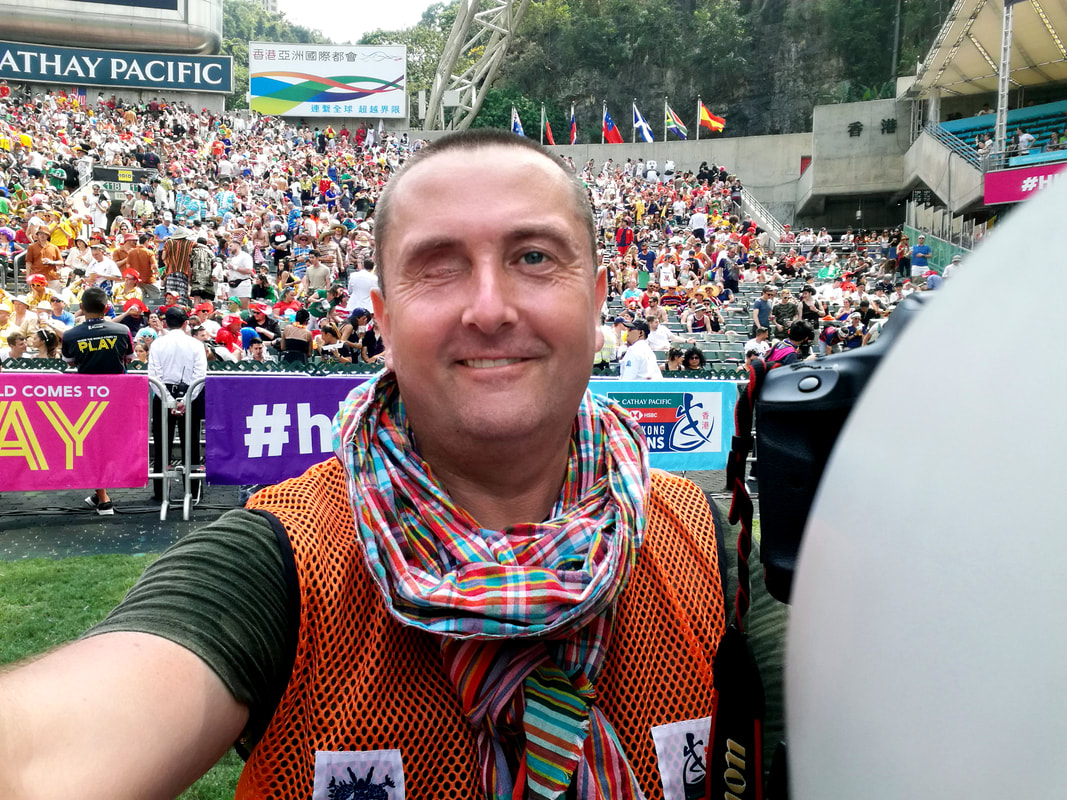
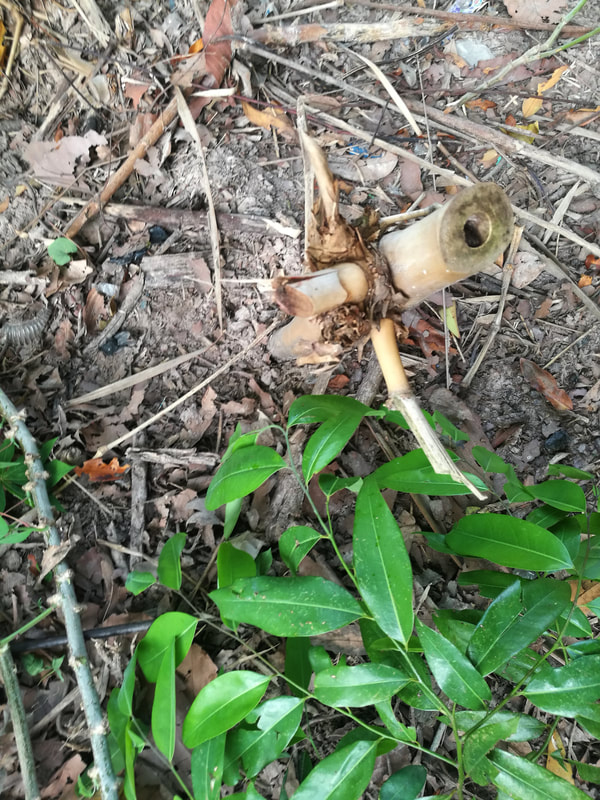
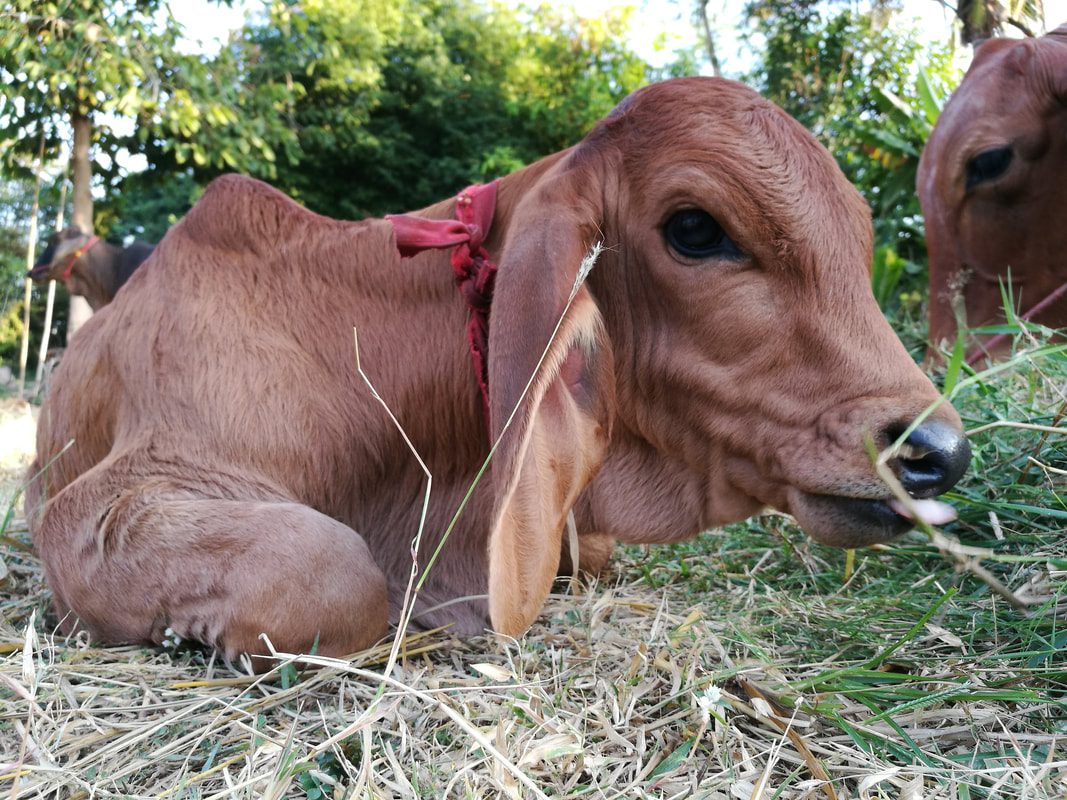
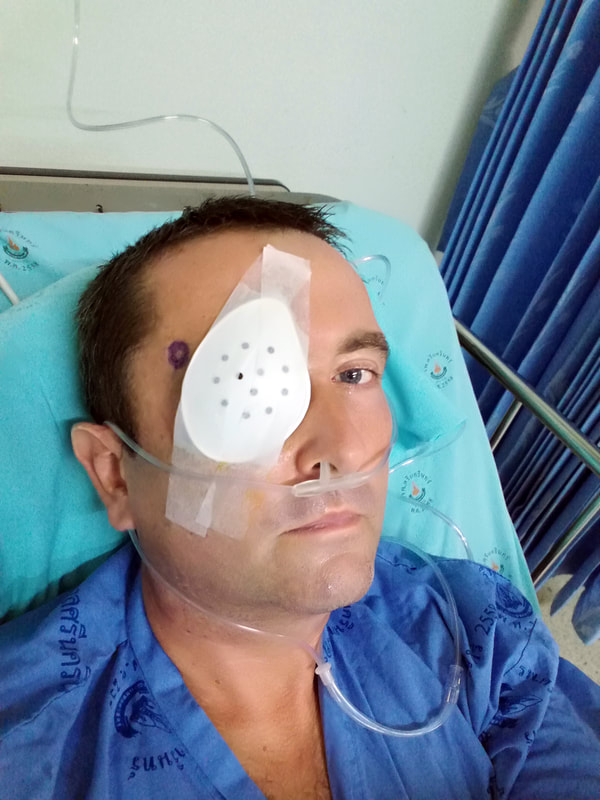
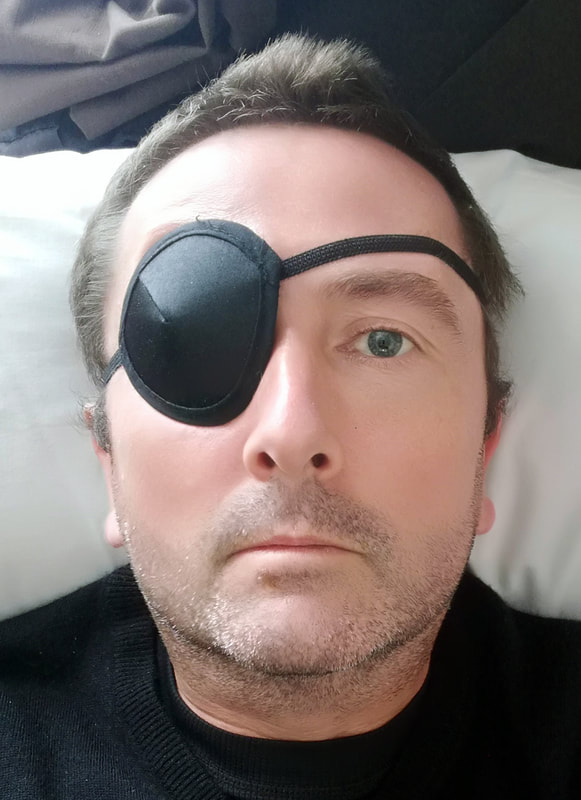
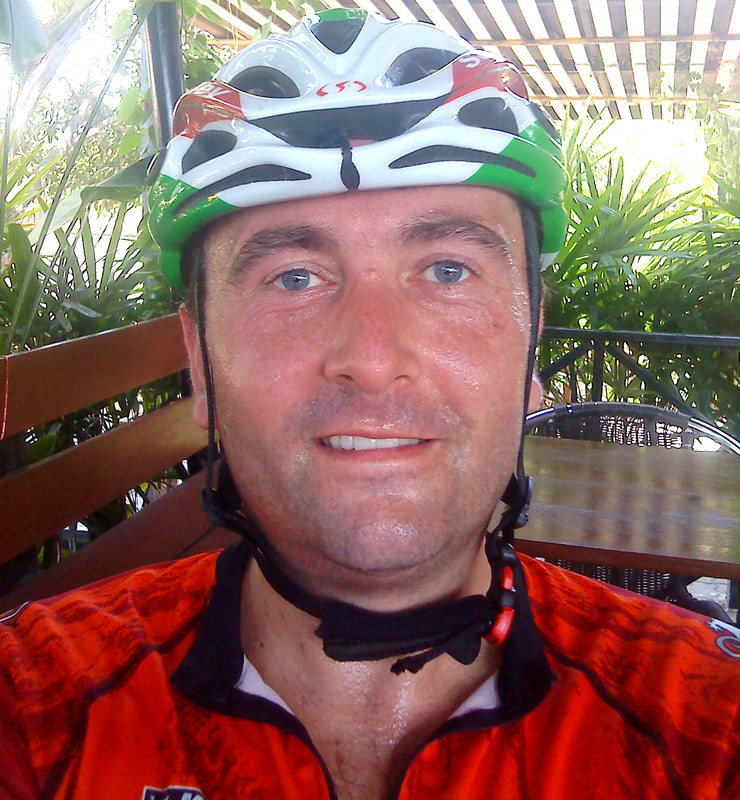
 RSS Feed
RSS Feed
















